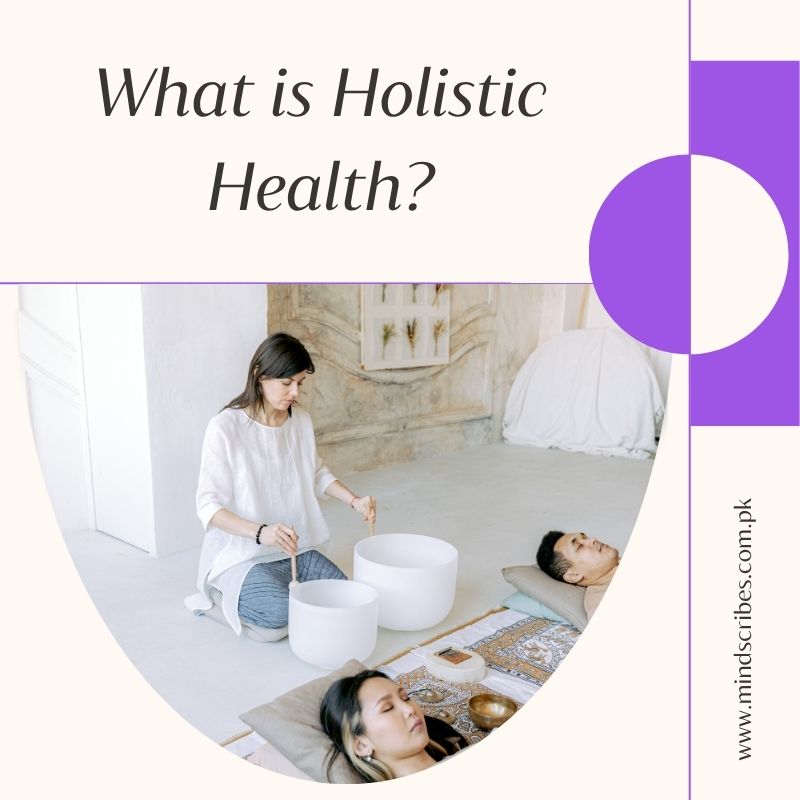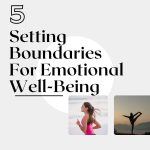In today’s fast-paced world, many people feel physically exhausted, mentally stressed, and emotionally overwhelmed. While modern medicine treats symptoms, it often does not address the root cause of imbalance. This is where holistic health comes in. Holistic health focuses on nurturing the mind, body, and spirit together, helping individuals create a balanced and meaningful life. Instead of treating one problem at a time, holistic wellness looks at the whole person and supports overall well-being.
What is Holistic Health?

Holistic health is a whole-body approach to wellness that considers how your physical health, mental state, emotions, environment, and lifestyle work together. It is based on the understanding that all aspects of health are interconnected. If one area is struggling such as stress or poor sleep it can affect the entire body and mind.
Traditional vs. Holistic Approach
| Traditional Healthcare | Holistic Healthcare |
| Focuses on symptoms | Focuses on whole person |
| Treats illness after it appears | Promotes prevention & balance |
| Uses medical procedures & drugs | Uses lifestyle & natural practices (along with medical care if needed) |
Holistic wellness does not reject modern medicine. Instead, it aims to support and strengthen the body naturally so that health challenges become easier to manage.
Why Holistic Wellness Matters Today
In modern lifestyles, people are more connected digitally than emotionally, more busy than balanced, and more stimulated than rested. Issues like stress, anxiety, insomnia, and low energy have become common.
Holistic wellness helps by:
- Reducing stress and mental overload
- Supporting emotional stability
- Promoting physical vitality
- Improving sleep quality
- Strengthening self-awareness and confidence
Today’s world requires inner balance just as much as physical fitness—and holistic health offers tools to achieve that balance.
Key Dimensions of Holistic Health
Holistic wellness is built on five major dimensions:
1. Physical Health
This includes nutrition, exercise, sleep, and daily movement. It focuses on keeping the body strong and energized.
2. Emotional Health
Emotional health means being aware of your feelings and having the ability to express them in healthy ways instead of suppressing or avoiding them.
3. Mental Health
This includes mindset, focus, clarity, positive thinking, and the ability to process stress.
4. Social Health
Human connection plays a powerful role in well-being. Healthy relationships provide support, warmth, trust, and belonging.
5. Spiritual Health
Spiritual wellness does not necessarily mean religion—it refers to purpose, values, peace, and inner grounding.
When these dimensions are aligned, life feels stable, meaningful, and fulfilling.
Essential Holistic Health and Wellness Practices
Mindful Breathing and Meditation
Breathing exercises help calm the nervous system and reduce anxiety. Even 5–10 minutes of daily meditation can improve mental clarity and emotional balance.
Try This:
Inhale slowly for 4 seconds, hold for 2, exhale for 6 seconds. Repeat for 10 minutes daily.
Balanced, Whole-Food Nutrition
Holistic nutrition focuses on natural, fresh, minimally processed foods.
Key Guidelines:
- Include colorful fruits and vegetables
- Choose whole grains
- Add healthy fats (nuts, olive oil, seeds)
- Stay hydrated
- Limit sugar and highly processed snacks
Food should fuel your body, not drain it.
Movement and Physical Fitness
Movement helps release mood-boosting hormones and improves circulation.
Holistic-friendly movement activities include:
Consistency matters more than intensity. Even 20–30 minutes daily makes a difference.
Herbal and Natural Wellness Support
Certain herbs support relaxation, digestion, sleep, and immunity.
Examples include:
- Chamomile (calming)
- Ashwagandha (stress support)
- Mint (digestion)
- Turmeric (anti-inflammatory)
Journaling for Emotional Release
Writing thoughts helps process stress, clarify emotions, and support mental well-being.
Prompt:
“What am I feeling today, and why might I be feeling it?”
Nature Therapy and Grounding
Spending time outdoors reduces stress hormones. Walking barefoot on grass, sitting in sunlight, or simply breathing fresh air can restore emotional balance.
How to Create a Holistic Daily Routine
Morning:
- Hydrate with warm water
- Practice 5 minutes of breathwork
- Eat a nourishing breakfast
- Move your body (stretch, walk, yoga)
During the Day:
- Take short breaks to breathe or walk
- Eat mindfully instead of rushing meals
Evening:
- Reduce screen time 1 hour before sleep
- Write calming reflections or gratitude notes
- Sleep in a quiet, dark environment
Small habits done daily bring long-term transformation.
Who Are You? Understanding Your Personal Wellness Needs
Wellness practices are not “one-size-fits-all.” Knowing yourself helps create a routine that works.
Ask yourself:
- What stresses me the most?
- What activities calm me?
- Which areas of life feel unbalanced?
Common Myths About Holistic Health
| Myth | Reality |
| “Holistic health means no medicine.” | It supports medical care, not replaces it. |
| “It’s expensive.” | Many practices are free (breathing, stretching, walking). |
| “It’s slow and ineffective.” | Holistic wellness builds long-term, sustainable results. |
Tips to Maintain Holistic Wellness Long-Term
- Start small—one habit at a time
- Be consistent, not perfect
- Celebrate small improvements
- Adjust practices when life changes
Healthy living is a journey, not a competition.
Conclusion
Holistic health is a powerful approach that helps you live with balance, awareness, and inner peace. By caring for the mind, body, and spirit together, you can build emotional strength, physical vitality, and a meaningful life. Small daily practices—like mindful breathing, nourishing food, movement, journaling, and connecting with nature—can transform your overall well-being.

